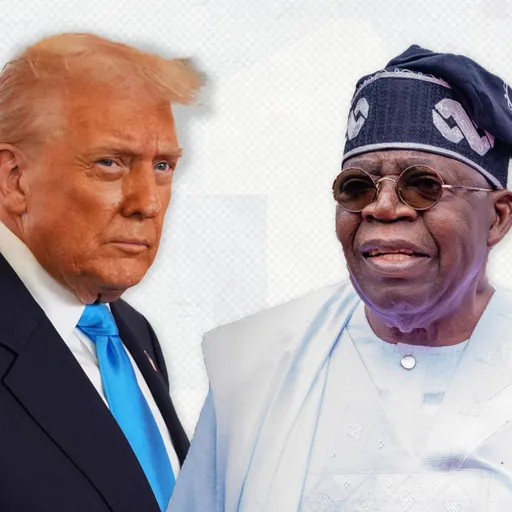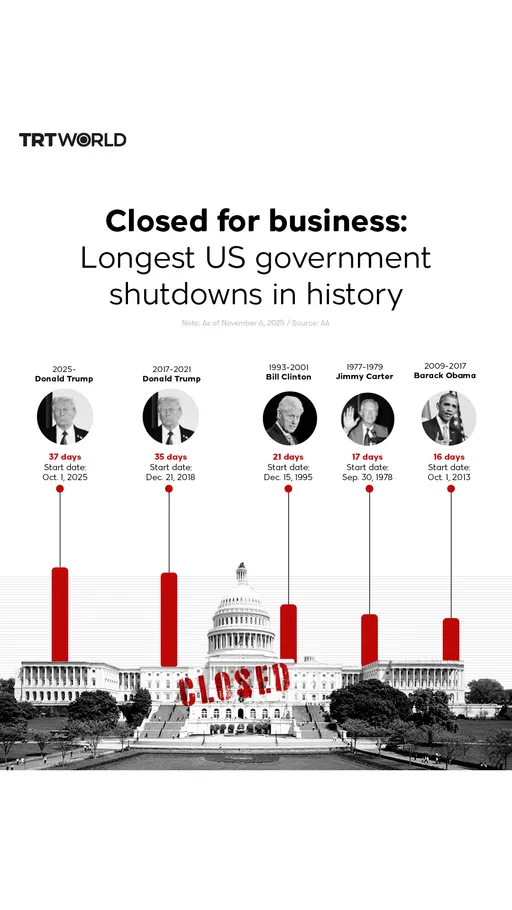This election cycle, US President Joe Biden is taking much of his coalition for granted, including Arab and Muslim voters, the Black community and young people. But can he afford to do that?
When asked this month how he felt about declining support from the Arab and Muslim community, Biden referenced contender Donald Trump’s "Muslim ban" and stated he would make sure "we understand who cares about the Arab population."
This type of dismissive sentiment is not new. Minority populations often feel that their issues get pushed aside once politicians take office.
A prominent theory in political science argues that this recurring circumstance is owed to these groups finding themselves "captured" in the political system: ignored by one major party and taken for granted by the other all so that politicians can cater to white swing voters.

A protestor demanding a ceasefire in Gaza, gestures during US President Joe Biden's speech at campaign event at the Mother Emanuel AME Church, the site of the 2015 mass shooting, in Charleston, South Carolina, January 8, 2024 (REUTERS/Kevin Lamarque). (Reuters)
Biden's camp presumes that come November, domestic concerns will outweigh any opposition that Arabs and Muslims have to the handling of the war on Gaza. The administration has demonstrated this belief by offering token concessions in response to these communities’ distress.
For their part, Arab and Muslim voters seem far more willing to defect from the Biden coalition in a fraught electoral gambit than the president assumes. This inclination should be a concern for Democratic strategists, given the outsized influence that mass defections from these communities could have on the 2024 election.
There's other groups Biden needs to worry about too.
Even if those in charge at the Democratic National Committee are (foolishly) unfazed by the prospect of losing Arab and Muslim votes en masse, they simply cannot ignore the criticism coming from the core of their coalition. For one thing, it appears that Black Americans are increasingly not on board with Biden’s foreign policy. More conclusively, it is clear that Biden is losing support among a key constituency: young voters.
To put it bluntly, the Democratic Party is existentially dependent on Millennial and Gen-Z voters. In a sense, anyone who wishes to win an election in the near term will need to rely in large part on these cohorts as those born between 1981-2012 will make up the majority of the electorateas early as 2028.
Lucky for Democrats, Millennials and Gen-Zers already appear to be more progressive than prior generations and more likely to turn out on Election Day.
However, a recent study conducted by the Public Religion Research Institute adds some needed nuance to these observations.
PRRI found that Millennials and Gen-Zers were the most likely generations to self-identify as "liberal" (39 percent and 43 percent, respectively), but they were no more likely than older cohorts to affiliate with the Democratic Party.
"For young people, the options that have been available to you your entire lifetime have been either Trump or Biden. You may be looking at that and saying, 'No thanks.' "
Even more telling, these youngest adults were significantly less likely to agree with the statement "Voting is the most effective way to create change in America."
Another recent survey has raised alarm bells about voter apathy amid the youth. Speaking to the New York Times about the results, pollster Kristen Soltis Anderson explained:
"For young people, the options that have been available to you your entire lifetime have been either Trump or Biden. You may be looking at that and saying, 'No thanks.' "
In the PRRI survey, 58 percent of Gen-Z respondents (more than any other cohort) agreed with the statement, "We won’t be able to solve the country’s big problems until the older generation no longer holds power."

Protesters rally during the "March on Washington for Gaza" in Washington, DC, on January 13, 2024 (AFP/Roberto Schmidt).
This sentiment is driven not only by the average age of federal legislators (58 years old in the House of Representatives and 64 years old in the Senate), but is also motivated by the stark generational divide on a number of core policies.
Although partisanship remains the key driver of polarisation in the US, the issues that matter to Millennials and Gen-Zers often transcend political party. Younger Republicans, for example, diverge from older ones on climate crisis, immigration, and foreign policy.
Such divisions are not as evident among Democrats - except when it comes to Palestine. In a poll fielded last December, for example, respondents were asked, "In the dispute between Israel and the Palestinians, which side do you sympathise with more?"
While 34 percent of all Democrats said they sympathise more with Palestinians, 46 percent of all 18 to 29-year-olds had the same response.
The numbers for Biden are even more worrisome when it comes specifically to the current conflict. Fully 70 percent of voters aged 18 to 34 years old in a November 2023 poll said they disapprove of the president’s handling of the Israeli war on Gaza.
Bleaker still are Biden’s approval ratings in the latest Pew poll from earlier this month. A stunning 71 percent of voters aged 18-to-29 years old disapprove of the way the president is handling his job. This figure is all the more remarkable given polls suggesting that 65 percent of 18 to 24-year-old voters cast a ballot for Biden in 2020.
While the White House is clearly not delivering the foreign policy that younger voters prefer, the administration is not altogether oblivious to this constituency’s grievances.
Calculating that this segment of his coalition will be swayed by action on the domestic front, Biden has announced the cancellation of federal student loan debt for thousands of borrowers and has centered the defense of reproductive rights in his latest campaign push.

Republican presidential candidate and former US President Donald Trump holds a campaign rally ahead of the Republican caucus in Las Vegas, Nevada, January 27, 2024 (REUTERS/Ronda Churchill). (Reuters)
So will Millennials and Gen-Zers vote "strategically" or "sincerely" in November? One perspective suggests that younger voters would be more reticent to defect from the Democratic party should Donald Trump win the Republican nomination.
Yet, a New York Times/Sienna poll in December found that 18 to 29 year olds actually preferred Trump to Biden. Then again, this finding may simply be a form of "expressive responding" - a way for disillusioned voters to register their frustration rather than report their likely electoral choice.
What is clear, in any case, is that Joe Biden is stacking a number of bets on the belief that the coalition that brought him to office in 2020 will be motivated to keep him there.
While Millennial and Gen-Z Americans are more likely to support progressive causes and candidates, they are by no means party loyalists. Democrats from the top of the ticket on down may learn that lesson the hard way in November.




















